Three RAF Chinooks and 100 personnel will remain in Mali as UK extends its commitment to supporting French counter-terrorism operation, say the Ministry of Defence.
According to a news release, personnel from RAF Odiham have been deployed in non-combat roles in Mali since 2018 with the aircraft contributing a unique logistical capability to the French-led operation.
“The Chinooks and aircrew allow French troops to cover a much larger field of operations by moving personnel to the front-line of activity, eliminating the need for dangerous road moves, and help move vital support equipment to strategic locations. Since arriving in Mali the RAF has clocked over 2,000 hours of flying and moved over 13,000 passengers and 1,100 tonnes of equipment. Currently, the Chinooks are being flown by aircrew from 18(B) Squadron and are supported by personnel drawn from across the RAF and British Army.
The conditions are often challenging, with over 40 degree heat in the summer months and regular sandstorms. Alongside international partners, French forces operate across the Sahel to counter the threat from militants linked to groups such as Al-Qaeda and Daesh. Forces deployed on this mission have had a number of successes and recently killed the leader of Al-Qaeda in the Islamic Maghreb (AQIM) and several other high-profile members of the group.”
Minister for the Armed Forces James Heappey said:
“West Africa is as important to the United Kingdom as it has ever been and we have many friends and allies in the region who share our desire to promote peace and prosperity. Combating extremism in the Sahel is vital for the security of the wider region and the UK will play it’s part tackling the declining security situation.”



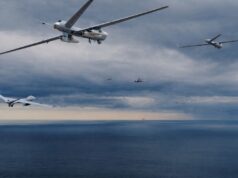
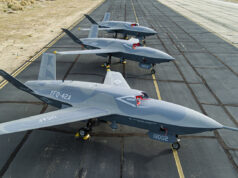
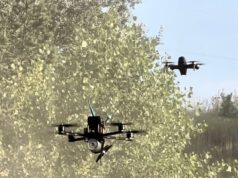
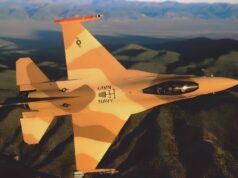
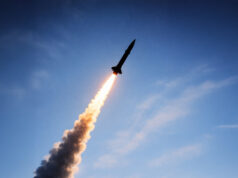
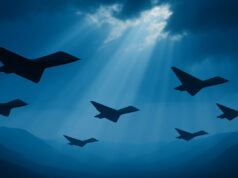
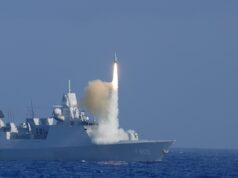
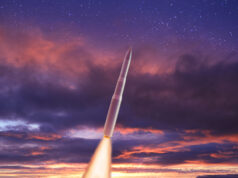
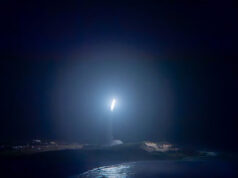
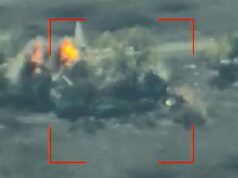

A reminder that therecare still quite a few countries that need us.
For me, more a demonstration of how countries with allies don’t need to have to be able to cover all the bases. How many people are screaming that France is pathetic because it’s getting help from the UK here compared to those screaming about how pathetic the RN is because the British carriers will often operate in mixed country task groups, or have US aircraft on board while completing NATO assignments?
Very well put.
Its only 3 chinooks, whilst i am sure they help i am guessing France could have made do without them.
Additionally France is looking to buy some chinooks.
Let’s not overplay that France is relying on our support.
On a side note, i am still amazed post Iraq/Afgan that we didn’t buy more helicopters, something that was time and time again brought up as a major problem. Instead we appear to have silently cut the number of Chinooks from 60 to 50 and a similar cut in the Apache’s.
p.p.s what happened to the proposed purchase of the extended range chinooks that was announced in 2018 but seems to have gone quiet since.
Right.
1. We still have 60 Chinooks in the UK fleet. They have all or are going through the digital flying control system upgrade amongst other upgrades.
2. Operation Barkane is a multi-national effort led by the French to back up the Malian Government from insurgent groups. There are currently a number of countries involved besides us, China being one of them. But Estonia has a large contingent as well as the Danes.
3. The Chinook is the only heavy lift aircraft available that can do 24/7 tasking. Previously the Canadian and Dutch had their Chinooks in support. But we have pledged support as France is provided air support for our CAS deterrent.
4. The Chinooks in theatre have a very high mission rate and are flying at least twice if not more during the day.
The UK are buying more Chinooks the contract has gone through the Main Gate. These will replace the older first batch of Chinooks we bought in the early 80’s.
I thought we had 60 chinooks with 20 more longer range ones in the pipeline. Don’t we have some in storage also?
To be honest we should be increasing helicopters of all types throughout the armed forces.
Helicopter airframe numbers where not the key problem, it was the type of helicopters that could operate in the hot and high conditions of Afghan. At the time, Pumas, Lynx, and commando Seakings couldnt carry a useful load in the very hot high conditions, hence a reliance on Chinooks and Merlins. Pumas have since been upgraded, Merlin has replaced Seakings, and now we have Wildcat, all of which could operate comfortably in hot n high conditions. So the number of useful helicopters has actually increased.
I dont understand why there has to be so much cynicism every time stories like this are posted and why so much of a divide has to be created that doesn’t exist.
We help them, they help us its what allies do and a two year plus contribution is not to be understated in today’s world.
France do not have any Chinooks.
They are thinking… thinking… of buying some for special forces, but they are not in the present budget as far as I know.
Ergo sum… the French are not as well equipped as we are. So we should stop trying to suggest we are regularly the poor relation.
Since the start of Mali, i believe we have also helped out with strategic lift (c-17 and A400) as well as with other capabilities such as Sentinel (2013).
Well said
How does France help us ?
They are too busy trying to enslave us over Brexit
Geoff for 10 years they have provided us with MPA support for our waters and to safeguard our at sea deterrent.
I’m a 100% with you James. There are always people on here trying to create needle between us and our allies, especially European ones. This is what allies do, particularly when they’re up against a common enemy.
Self loathing and cynicism are unfortunately the default position of many Brits…..
Far too many people seem to view Britain through the same lens as the rabidly Left wing Jimmy McGovern and his dreary depressing ‘Britain is shit’ TV dramas…..
It’s the British disease…..
Totally agree with you James. ‘well said’
Steve it’s only 3 Chinooks yes, but along with that comes the manpower requirements on rolling 3 or 6 month deployments. We work together with the French in other ways and we rely on them, as they rely on us, for much needed role specific equipment and taskings. As Rob put it, that’s what having decent reliable Allies is all about.
I am not putting down our support and think we should always support our allies (assuming its not a stupid war), all i am saying is its being built up as a major support that france is relying on, which i consider overselling things.
3 helicopters do not make/break things when you have 20 of their own there (they could easily bring more as they have way more) and Netherlands has 2 (almost as many as the UK).
They kinda do as you could have 50 Gazelles or 100 Mh-6 in the field but that still won’t do as much or be as useful as 3 chinook. So the French having 20 smaller units won’t help them as much as our chinooks. Correct doesn’t make or break but sure as complicates and hinders things
France have a fair few Puma / Super Puma’s, whilst smaller than a chinook they are not exactly lightweights and way more capable than a Gazelle. Just curious why they haven’t’ deployed more of them to the front line.
Yes, but the chinook brings capabilitys the French currently don’t possess, that’s why the have requested the deployment.
Fair point but airframe type is what counts, and be aware that while it is 3 Chinook, that’s one of many many comitments we have around the globe. Your example of the Dutch having 2, while useful, needs to looked at in context as the Dutch have far fewer defence comitments around the globe.
Yes pre Covid 19 France was thinking about purchasing some Chinnoks, however post Covid and the economic impact, this has been scrapped in favour of locally produced military equipment to help relaunch the economy, so more Caracal or NH90s will be the likely outcome.
France really doesn’t like buying anything for their military that isn’t French. They have lacked a heavy lift capability for decades as they poured money into the Dassault.
It’s best to assume one day you will have to defend yourself and that others will not come to your aid when requested. If/when that day comes and you’re not prepared then you will suffer.
But… that’s costs resources – resurces are limited. What you have to do if try for the best that you can afford – and that Jack of all trades, master of none raises it’s head. If you have a ship that has fantastic systems for anti air, anti sub and anti ship… it’s expensive, you can’t afford many of them. So you have to compromise. Your defence has to be practical and affordable. So you miss out in some areas? – then try to make those areas the less critical ones. The US outspends everyone massively and still isn’t happy with what it’s got!
Glad we are helping our allies. Their enemy is ours.
Well said.
Well said
Agreed, combating terrorism in the Sahara/Sahel saves many lives & dislocation.
Yes, and this time we need a plan that actually solves the issues that cause us to go there in the first place, or it’s just another Afghanistan. A plan that gets the troops home and leaves behind a peaceful and prosperous region.
It’s a bit concerning that the, “UK will play it’s part tackling the declining security situation.”
After two years I would have hoped that either things were swinging in the Allies favour or there was a political wayout on the table. The risk is another opened ended insurgency war that costs the West in lives and treasure.
Don’t get me wrong, I’m not in favour of letting the radicals have free reign, rather I would have hoped that after nearly 20 years of one insurgency after another we’d have found some other way forward. Although, to be fair I’m at a loss myself as how to deal with the radicals of all exptremes…
Sorry for the rather depressing post… I’ll go back to tidying the garage.
Cheers CR
Hi CR. For me the role of European troops is to stablise first if necessary, but to move rapidly to a role of advice, training and support, not front line roles. We shouldn’t get into a situation where we are perpetually fighting wars against insurgents on behalf of the host nation, the host nation must take the lead in that role and be incentivised to work for a political and military solution of their own. Its the only way that the host nation can ultimately stand on its own. Removing European troops from front line roles also helps to undermine the positioning of them as colonialists by the insurgents.
Hi Glass Half Full,
Yes, I would agree with you in principle but in practice it is not always possible for Western forces to disengage successfully, look at the US experience in Vietnam and the UK / French experience in Libya. In Vietnam US involvement started off as small military advisor teams but as the situation deteriorated they became more heavily embroiled in the frontline war. When they tried to extract themselves the South Vietnamese quickly collapsed.
In Libya the UK and France (initially) then the US and Italy got involved if I remember the sequence of events correctly, tried a different tact using airpower (and special forces) to support local ground forces. That didn’t work either. Now we are faced with Russia getting invovled. NATO’s Southern Flank would look a lot more vulnerable if the Russian Navy and hence, perhaps, the Chinese Navy operating out of Tobruk or Tripoli?
So we are faced with either watching week local governments going down and coming under the influence of Russia and / or China or getting directly invovled. The trouble is the weekness I am referring to is not merely military weekness, but mainly political and critically institutional weekness which take years to sort out.
This “… but mainly political and critically institutional weakness …” is the underlying problem when resolving an insurgency and may well have been a major contributor to causing it in the first place. Along with political, tribal and regional rivalries.
Iraq and Afghanistan illustrate how political games between different in-country power blocks seem to take precedence over countering Daesh and the Taliban. IMO one of the most critical actions for European missions is to diplomatically knock heads and apply pressure in the political system if necessary, ensure a national leadership, command and ownership is established for the counter insurgency operations, while in the short term taking the direct action necessary to get the situation under control. But if the Europeans retain military control too long, especially with our own forces doing the fighting, then we are likely to repeat the failures of the past. Its too easy for either insurgents, or external parties such as Russia, to create mischief by whipping up additional anti-colonial sentiment for recruitment to the insurgency.
The French were originally responding from a plea of help from the Malian Government. They had lost about 2/3 of the country to Islamic terrorists. France launched Op Serval, which was initially designed to stop the rout of the Malian security forces and then to look at retaking the rest of the country. They couldn’t do it alone so Op Barkhane was launched. This is multinational effort that has restored the majority of the country to the Government. The problem is the topology of the country. In the North is the Sahara, in the middle savannah, the south forest. The northern half is sparsely populated and the borders are very fluid. Another thing that is not well known, in the southern region, there are huge deposits of Uranium. Something you don’t want getting into the wrong hands.
What was originally a support mission has morphed like all good missions do, into part two of the Syria/Iraq war against IS. A large proportion of the IS fighters managed to flee going to Libya, Chad, Mali and Niger. Their unique form of warfare has been seen in countries surrounding Mali, including Burkina Faso, Nigeria and Mauritania. A number of countries have now signed an agreement, allowing the multinational forces to pursue and interdict these terrorists across their borders.
Following the successful tactics used by the Chinook force in Afghan. They are using a development of what was used before to great success. They are also one of the few aircraft available that can carry the troop numbers with the range.
I am not criticising either of the operations. Clearly destablisation in this region is not only bad for the region itself but creates further refugee and migration issues that ultimately end up on Europe’s doorstep to solve later. The challenge is turning this into a successful counter insurgency that doesn’t require Europeans in the lead role.
You can see my response to CR above for the problems with this type of intervention if we’re not careful. Inevitably if Europeans have boots on the ground leading the counter insurgency action, then nationalistic fires in the countries will be stoked by anti-colonial rhetoric that helps to exacerbate the situation. We can already see this being done. Its critical to counter and avoid it.
This is not meant to be a racist comment, but it could be construed as such. Having worked with the Afghan Army recruits and some others around the World. I do see a pattern. I can’t say it’s just down to a lack of education, environmental factors or genetics. But I can categorically state that Nations who were classed as “Third World” the caliber of recruits and trained experienced personnel is quite frankly terrible. The last training camp I was involved in was in Afghan. You would teach the them basic weapon handling skills, which on the whole they got. But come tactics for responding to ambushes, clearing buildings and advancing to contact. It just went to rat-shit. You would repeat and repeat the exercises and eventually some got it, but on the whole they’d go through one exercise ok, then do the same the following day in complete disarray.
The time we went out with them on a patrol, you have to constantly tell them what to do. Then when they got into a real contact, all the lessons went out of the window, they all bunched up and went into spray and pray mode. I really can’t explain it, especially when you compared them with the Taliban or ISIS. Although with them I think Darwinism has a lot to do with it, i.e. the survivors of contacts learn from the mistakes made by others not so fortunate. Therefore they become better more experienced fighters through the hard lessons learnt.
This will always be the problem for countries such as Mali, where the local security forces have in the past been routed and faced more experienced opponents. In which case they will always need outside help. The Afghans are finally getting it, but the process is very slow. It may take years for them to become a competent cohesive force. At the moment not so much. The question is how do you coach a local force to become not only reliable but effective in a short space of time?
The problem you experienced seems to reflect a lack of quality candidates based on your description. Not an easy problem to solve but IMV it comes back to the political leadership in a country who need to be committed to recruiting motivated, intelligent personnel, to make a professional force respected for all the right reasons by the population, that develops pride and esprit de corps, not just making up numbers with whoever they can get. But given the high risk context, if they don’t pay well, if the role is only being filled because it pays a bit better than subsistence farming, i.e. its just a job, if troops are held in low esteem, then that is likely to result in poor results regardless of how much training goes into them.
Are they still charging us to carry the spare parts in their planes or did they backtrack on that stupidity?
Will be nice for the French once their own CH-47Fs are delivered.